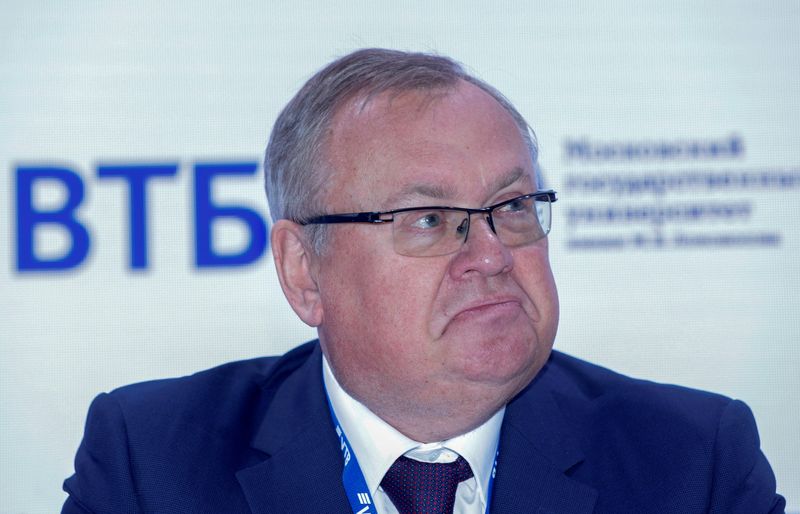By Elena Fabrichnaya and Alexander Marrow
MOSCOW (Reuters) - Russia's VTB bank's losses last year were due entirely to sanctions, CEO Andrei Kostin said on Tuesday, a rare acknowledgement that the West's punishment of Moscow over the Ukraine conflict have crippled parts of Russia's financial sector.
The West blocked several major Russian banks' access to the international SWIFT payments system soon after Moscow sent tens of thousands of troops into Ukraine on Feb. 24 last year, with dominant lenders Sberbank and VTB - Russia's No. 2 bank - forced to shutter operations across much of Europe.
The sanctions hammer fell for VTB sooner than most domestic rivals and, being heavily exposed to international markets and with more than 20% of its loan portfolio in foreign currency, the bank was one of more than 100 loss-making lenders as the sector's profits slumped around 90% in 2022.
Kostin, in an interview with state television channel Rossiya 24, said the bank had managed to grow its retail and corporate loan portfolios, but that sanctions accounted for all the lender's losses.
"The main thing on which we incurred losses is that from Feb. 24 to March 10, before decisions were made about restrictions on issuing funds in foreign currency to the population, $26 billion was withdrawn from our accounts," Kostin said.
Capital controls introduced in February and March last year included a ban on buying cash dollars and euros as depositors hurriedly withdrew funds and Moscow sought to wrestle back some control on the FX market.
VTB was forced to buy FX on the open market when the rouble had weakened sharply to more than 100 against the dollar, Kostin said. On Tuesday the rouble was trading at around 71 to the dollar.

Kostin also pointed to deteriorating financial markets impacting the bank's clients, the closure of parts of VTB's extensive overseas network and the central bank being unable to provide sufficient dollar liquidity as further evidence of the sanctions impact on its results.
VTB was profitable in January and hopes to post profits in 2023 with a similar number of zeroes as the 320-billion-rouble figure achieved in 2021, Kostin said.